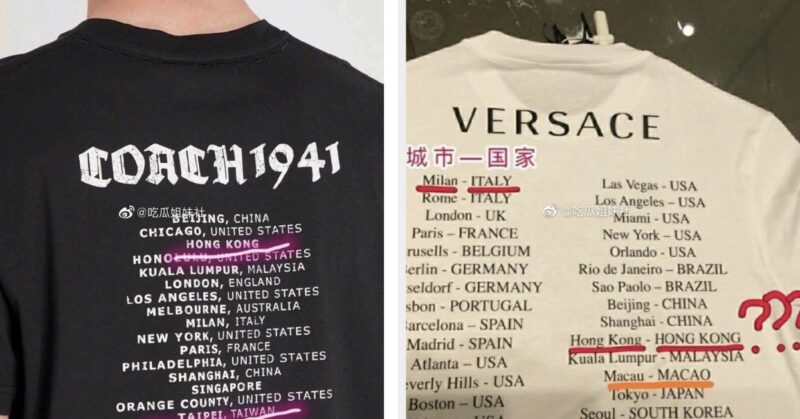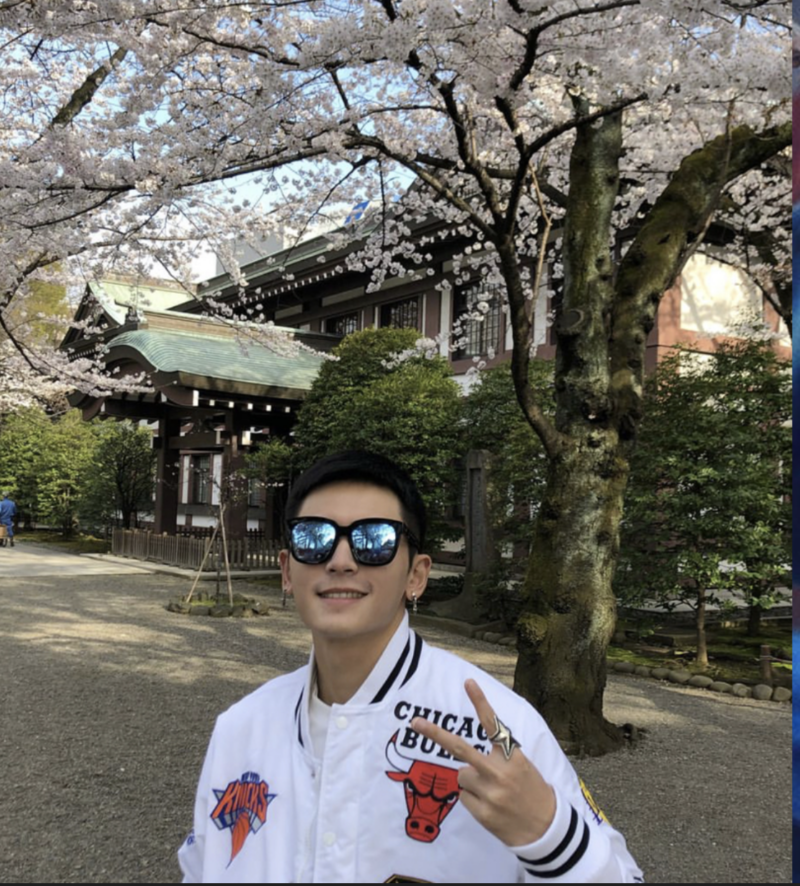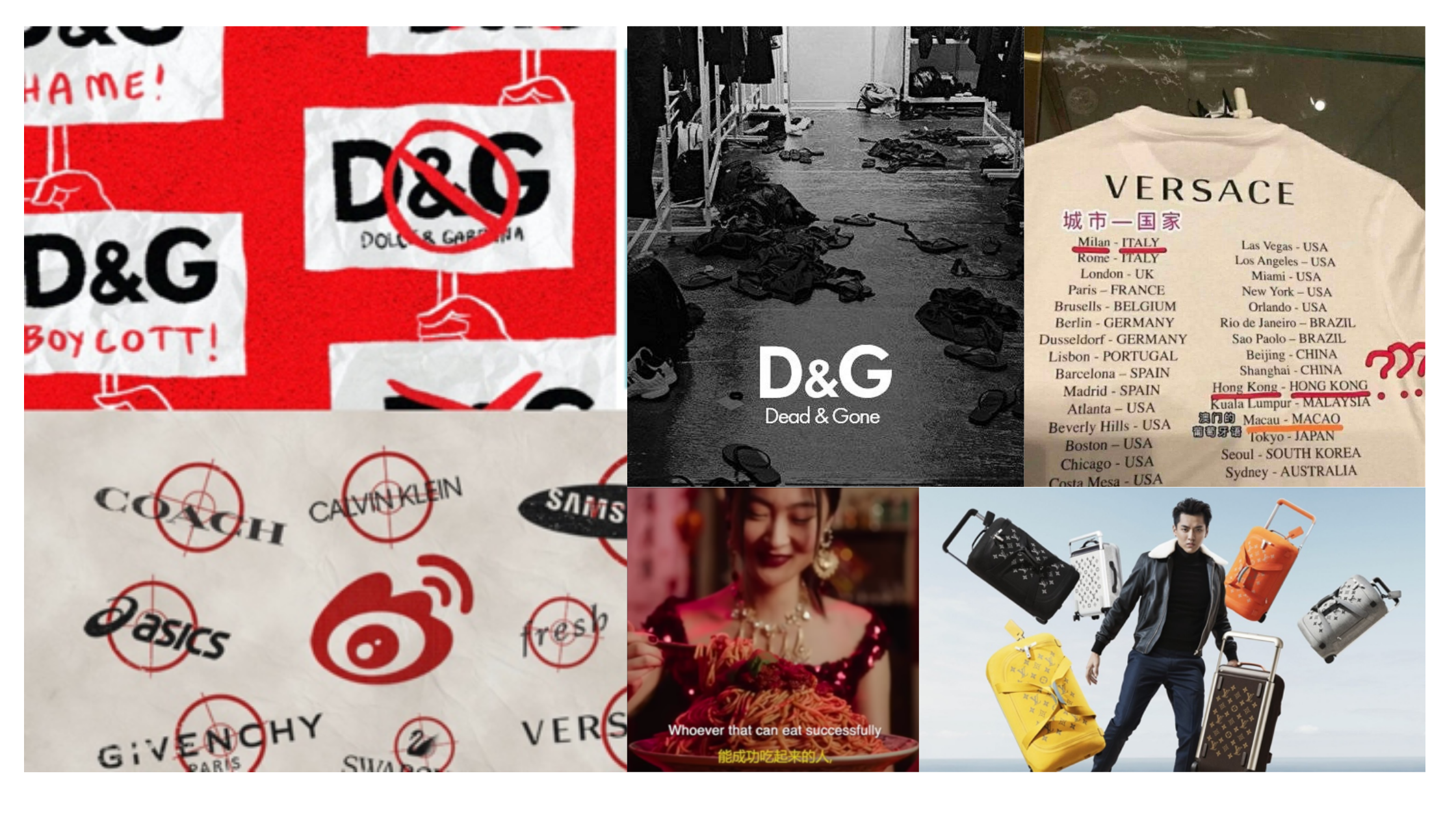In this article, we will discuss some of the most common types of PR mistakes foreign brands made in China, which include causing a discrimination-based crisis, political crisis, inappropriate behavior of a brand ambassador, and collateral impact on the parent company. Our team has rated these PR mistakes on a five-star scale rating crisis frequency and impact severity of every crisis.
We will discuss why each crisis occurred, how it was managed, and how it could have been prevented or managed better. Why is it significant to prevent PR mistakes? A famous Chinese fashion blogger, Zoe, published a poll asking people’s attitudes towards brands that insulted China. 70% of the one million respondents stated that they would “never buy their products even if I have nothing to wear”.
Discrimination-based crisis
Crisis Frequency: 3/5
Impact severity: 5/5
Our team member Remi explains that a discrimination-based crisis occurs when a foreign brand “underestimates growing national and cultural pride of the Chinese consumers”. This growing pride follows the rapid economic growth of China since the reform and opening up in 1978, which by many has been viewed as a way to catch up with the West and regain their dignity after the Century of Humiliation. In school, Chinese children are taught that the Century of Humiliation began with the Opium war and ended with Mao’s reunification of China in 1949, thus linking their country’s humiliation to Western imperialists. In China, the current economic boom which puts them on par with the West is referred to 屌丝逆袭 (diaosinixi), which directly translates as “loser strikes back”. With nationalism growing, the term Guochao (国潮, literally translates as ‘National tide’) is also growing. Chinese consumers prefer to support domestic brands that pride in Chinese heritage and culture. For this reason, foreign brands today must be extra careful on how they present Chinese culture in their advertisements and try to implement Guochao elements to stimulate sales. An example of a foreign brand implementing Guochao successfully is Tiffany&Co in releasing its luxury mahjong set.

An example of a discrimination-based crisis is the 2018 campaign by Dolce and Gabbana (D&G), intended to be a lighthearted comedy highlighting the differences between Chinese and Italian culture. The campaign presented a Chinese woman trying to eat Italian food such as pizza and cannoli with chopsticks. This was offensive for various reasons, for instance, it is considered offensive in China to play with chopsticks; the model was poking her food with chopsticks when this gesture is also considered extremely rude and disrespectful. In addition, the irony of an Italian person teaching a Chinese woman how to use chopsticks angered audiences. On top of that, the spokesperson’s tone and comments were viewed as sarcastic, patronizing, and belittling. Examples include: “Today we will use these small sticks to eat this great traditional pizza” and ”Is it still too big for you?”, referring to a Sicilian Cannoli, a tube-shaped pastry.


This campaign, in conjunction with leaked messages from Stefano Gabbana (co-founder of D&G), where he called China the country *poop emoji*, has led to the removal of D&G products from Chinese e-commerce platform, JD, as well as a boycott of the brand by Chinese consumers, and KOLs and models who were to attend a D&G fashion show in Shanghai. The fashion show was cancelled and D&G was nicknamed “Dead and Go”.
Solutions and preventions for Discrimination-based crisis
The brand apologized on behalf of Gabbana’s racist comments by stating his Instagram account was hacked and released a ninety-second apology video on the campaign.
Takeaways from this PR mistake:
- Stray away from campaigns joking about cultural stereotypes since you are treading on thin ice.
- Publish more thorough and honest apologies instead of a typical ‘ticking the box’ apology
- Offer sneak previews of future campaigns and soft launches while carefully monitoring reactions and make necessary modifications to your campaign to prevent a PR mistake from blowing up
Political crisis
Crisis frequency: 4/5
Impact severity: 5/5
Sovereignty and territorial integrity are sensitive topics in China due to historical reasons. China, Hong Kong, Macau, and Taiwan have currently united as the “One country, two systems” constitutional principle of the PRC since the late 1990s. Foreign brands must not refer to Hong Kong, Macau, or Taiwan as independent countries, since doing so would trigger a long-lasting negative impact on the brand.
Foreign brands that disrespect territorial integrity can expect termination of contracts by brand ambassadors, and delisting of their products from e-commerce sites in addition to dramatically reduced sales. Chinese celebrities have the right to unilaterally terminate contracts, without paying liquidated damages if the brand disrespects Chinese history and culture or interferes with politics. This serves as protection to the celebrities’ public images, which is essentially what makes them a living. Gap, Givenchy, Burberry, The White House, a number of U.S airlines, Disney, Nike, and Ikea are some of the foreign brands which have made political PR mistakes regarding China.
Chinese netizens were enraged when Versace released its T-shirt listing cities and countries, but listing “Hong Kong, HONG KONG” and “Macau, MACAO”. These T-shirts were released in the summer of 2019, in the heat of the Hong Kong independence riots, which resulted in Versace appearing to support Hong Kong’s independence. Yang Mi, a Chinese brand ambassador of Versace, immediately ended her cooperation with the luxury brand.
Coach, around the same time, made the same mistake of writing Hong Kong and Taipei, Taiwan on their T-shirt design as well as listing them on their website as separate regions instead of under China. Liu Wen, an ambassador of Coach, had also terminated her collaboration with the luxury brand and stated “I love my motherland and resolutely safeguard China’s sovereignty!”

Solutions and preventions for Political Crisis
Versace and Coach both apologized for their mistakes and stopped selling the T-shirts to prove that they respect national sovereignty and territorial integrity. Brands can avoid this PR mistake by:
- Avoid using Hong Kong, Taiwan, and Macau when creating designs of this sort as there are plenty of other cities to choose from.
- List Hong Kong, Taiwan, and Macau under the China region on websites.
Inappropriate behavior of brand ambassadors
Crisis Frequency: 3/5
Impact Severity: 3/5
Brands must be extra cautious when appointing a brand ambassador as a well-chosen one can bring heaps of exposure and increase sales, however, a badly chosen one can bring financial loss and affect the brand’s image and reputation. Since a brand ambassador is chosen to be the face of the brand, someone who perfectly encapsulates the ideals of the brand and what they mean – one mishap can detrimentally affect a foreign brand.
Kris Wu, A Chinese-Canadian rapper, was accused of sexually assaulting over 30 girls, including minors. A post on Weibo backed these claims with photos and screenshots. As a result, Kris Wu immediately lost his sponsorships with Porche, Burberry, McDonald’s, and L’Oréal among many others. LVMH brands that sponsored him including Louis Vuitton and Bvlgari did not drop Kris Wu until a police investigation found him guilty. The postponed reaction angered netizens who called for a boycott of LVMH brands.

Another example of inappropriate behavior is seen through Zhang Zhehan, a brand ambassador for Coca-Cola, Pandora, and Clinique to name a few. Zhang posted a photo of himself in front of the Yasukuni shrine in Tokyo, a shrine built in 1869 to commemorate all Japanese war dead (including war criminals) since then. Due to the brutal Sino-Japanese wars, this was regarded as a pro-Japanese action showing insensitivity to the nation’s suffering, something unacceptable from such a public persona.
Zhang Zhehan’s personal Weibo account as well as his work account and most popular fan page were all taken down. Zhang was removed from acting jobs and boycotted from all members of the China Association of Performing arts. Lastly, the total financial loss of all the brands that sponsored him was estimated to be more than 50 million RMB (USD 7.5 million).

Solutions and preventions for Inappropriate behavior crisis
- Employ virtual KOLs. They are cheaper and more reliable than human ambassadors.
- Terminate contracts immediately after a scandal to distance your brand from it and minimize losses. Better safe than sorry.
- Employ KOLs to call out against the influencer that behaved inappropriately
- Do thorough background research on ambassadors before signing contracts, as well as long interviews to better understand their character.
Collateral Impact of the Parent Company
Crisis frequency: 3/5
Impact Severity: 4/5
When a parent company is involved in a PR mistake, Chinese consumers can be quick to boycott all its subsidiaries. Consequently, it is important that a foreign brand does not impulsively or publicly take stances on issues without cautiously thinking of the extent of the consequences that may follow.
The Xinjiang cotton crisis occurred in Spring 2021 when brands boycotted cotton produced in Xinjiang due to it allegedly being produced through forced labor of Muslim Uyghurs in conversion camps. H&M was in the spotlight of this crisis, even being banned from leading Chinese e-commerce platforms.
LVMH, the parent company of many luxury brands including Louis Vuitton, Dior, Hermes, and Fendi, has joined the Better Cotton Initiative (BCI), “the world’s leading sustainability initiative for cotton” according to their website. Simultaneously, the BCI exited the Xinjiang region. Chinese netizens saw this boycott as an offense against the state, and accused foreign brands and organizations of believing lies and rumors. LVMH apparel companies’ sales in China were affected as Chinese consumers boycotted LVMH brands.
Solutions and preventions for Collateral Impact of the Parent Company
- Steer away from trying to be “politically correct” in the Western sense when you have a large consumer base in China; stay away from politics and be neutral to keep consumers happy
- Do not hesitate to change your positioning on an issue when you realize the losses are more than the gains
Key Takeaways from PR mistakes that foreign brands made in China
- Chinese consumers are unapologetic when it comes to foreign brands making PR mistakes that insult their country and culture – they will not hesitate to boycott the brand
- Foreign brands must take the time to understand Chinese culture to prevent PR mistakes related to discrimination and racism
- Foreign brands must not play around with cultural stereotypes, they must have soft launches of their campaigns while carefully monitoring reactions and making the necessary adjustments before hard launch and must give thorough and honest apologies if a PR mistake has been made
- Foreign brands must educate themselves on the politics and territorial integrity of China to avoid a political PR mistake, the worst and most unforgivable one.
- Foreign brands must not mention Hong Kong, Macau, and Taiwan as independent countries in their designs or websites (always list under China)
- Brand ambassadors should be under tight inspection by their sponsors since inappropriate behaviors on their side can cause huge financial losses and a bad reputation for the brand. If they participate in a scandal, break contracts immediately without delay
- Foreign brands could instead employ more virtual KOLs which are more reliable
- Companies must avoid positioning themselves in political conflicts since their defamation will have a collateral impact on their subsidiaries
Author: Nefeli Georgiou





